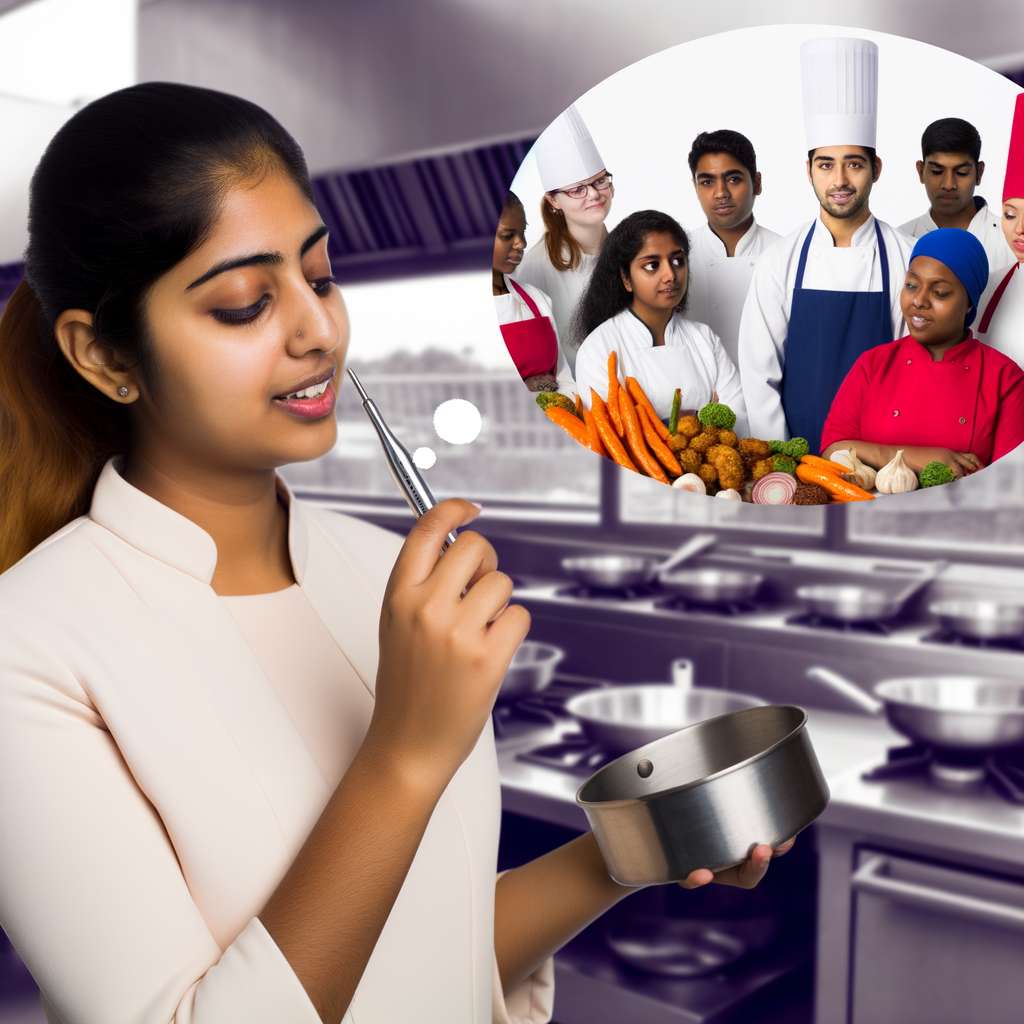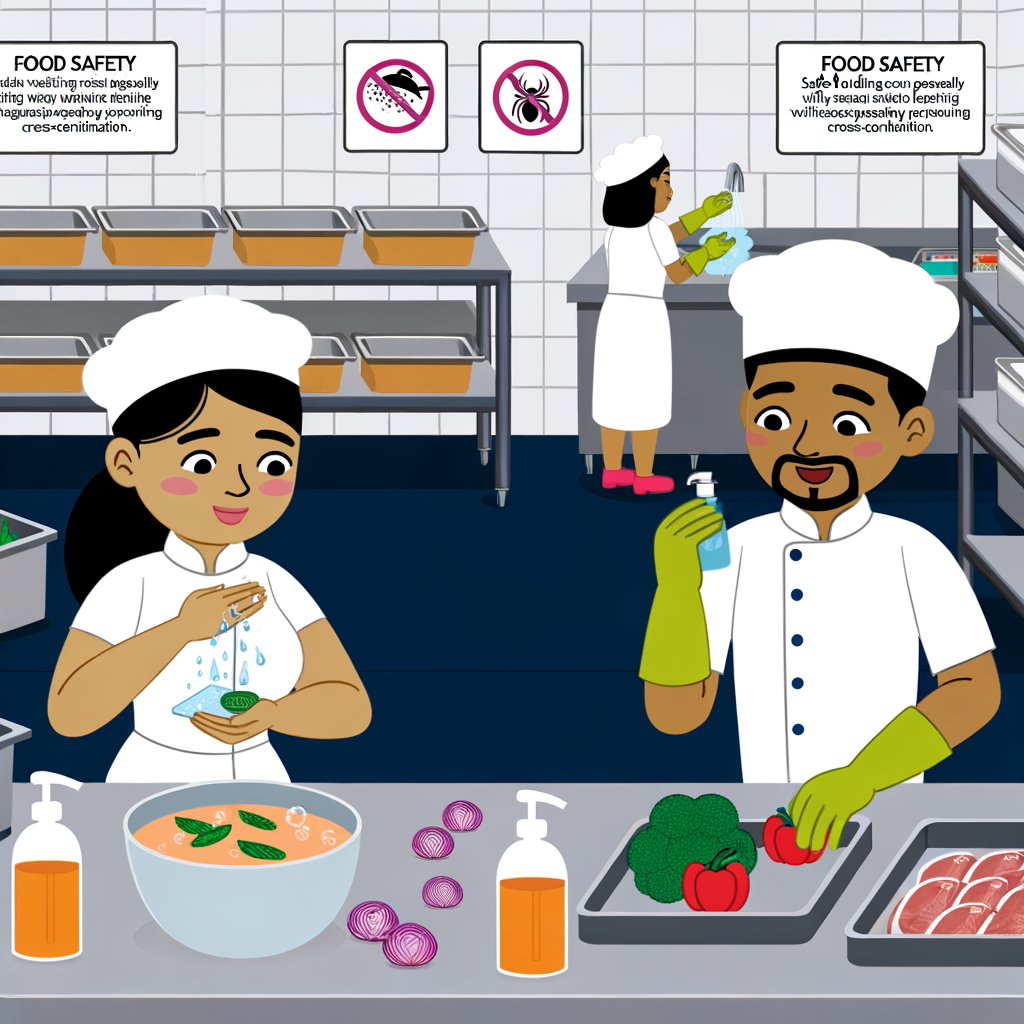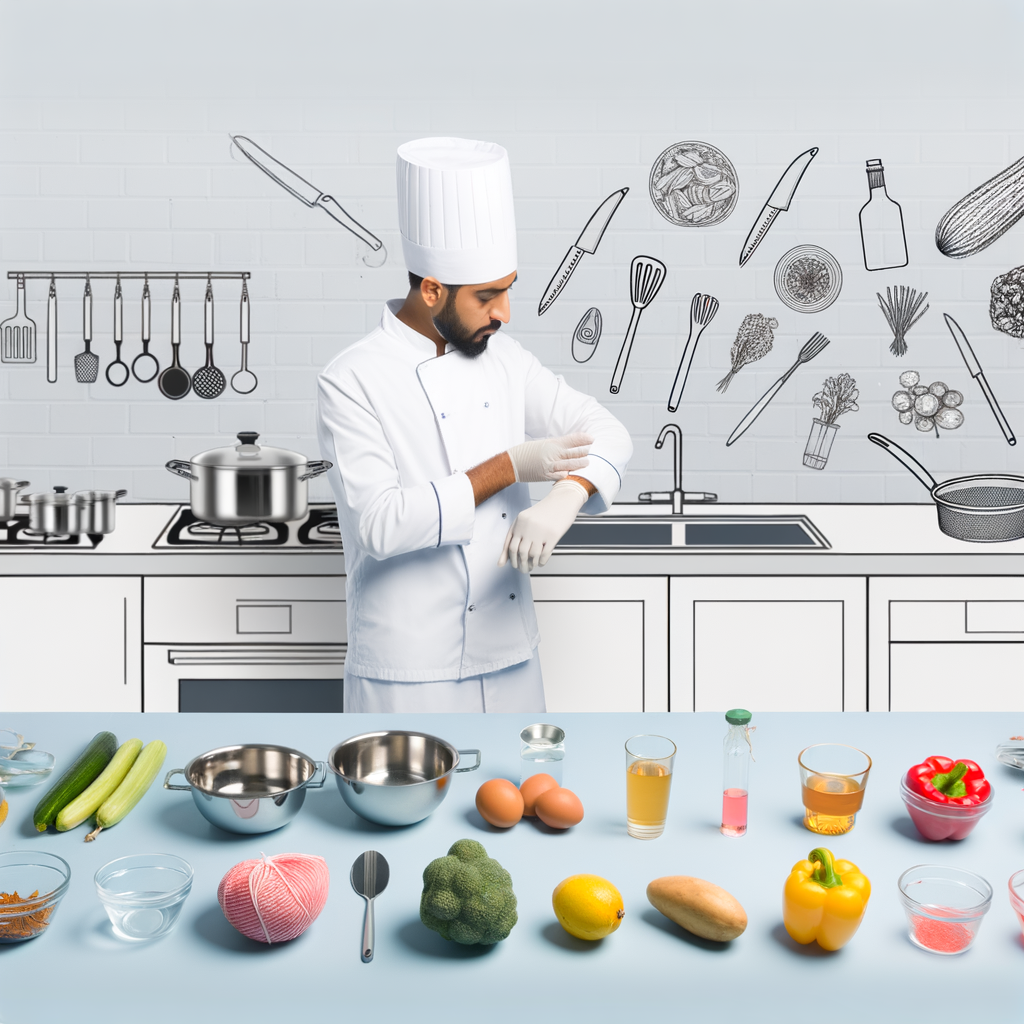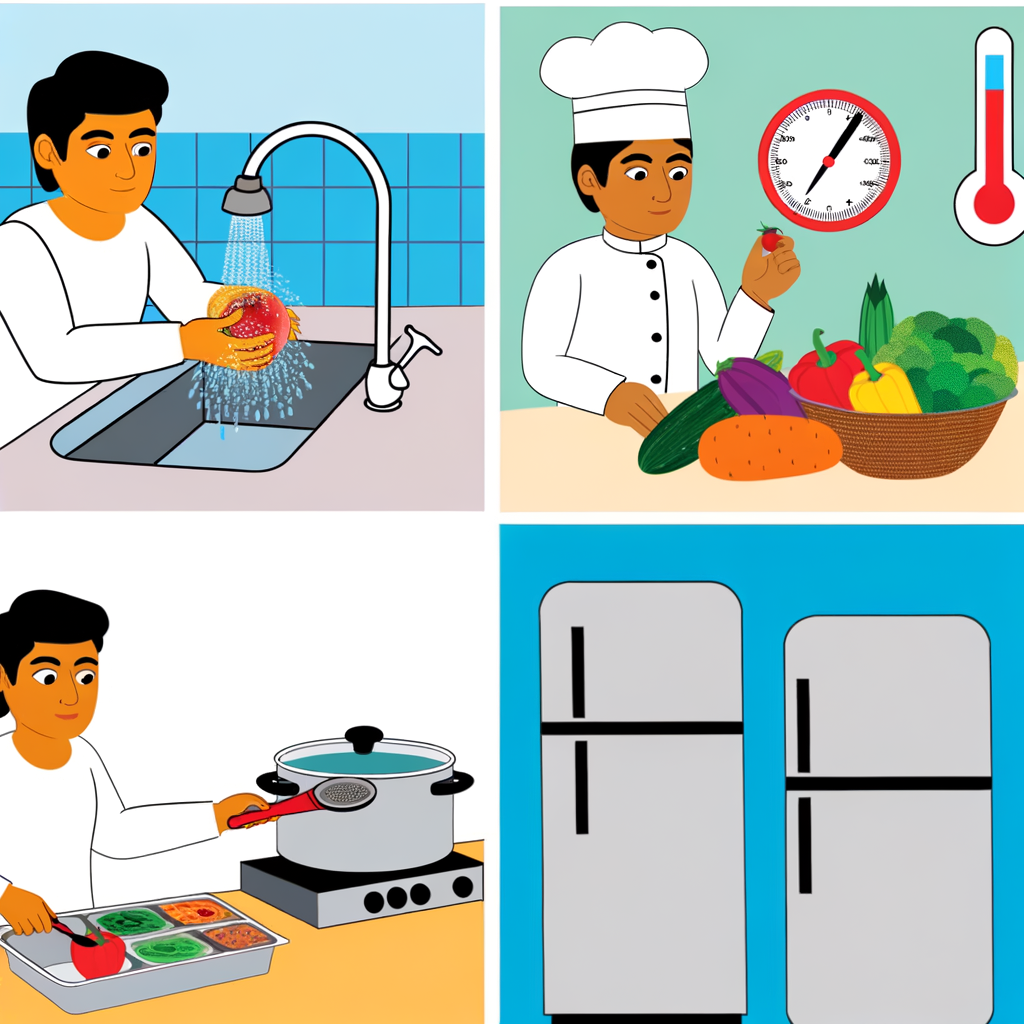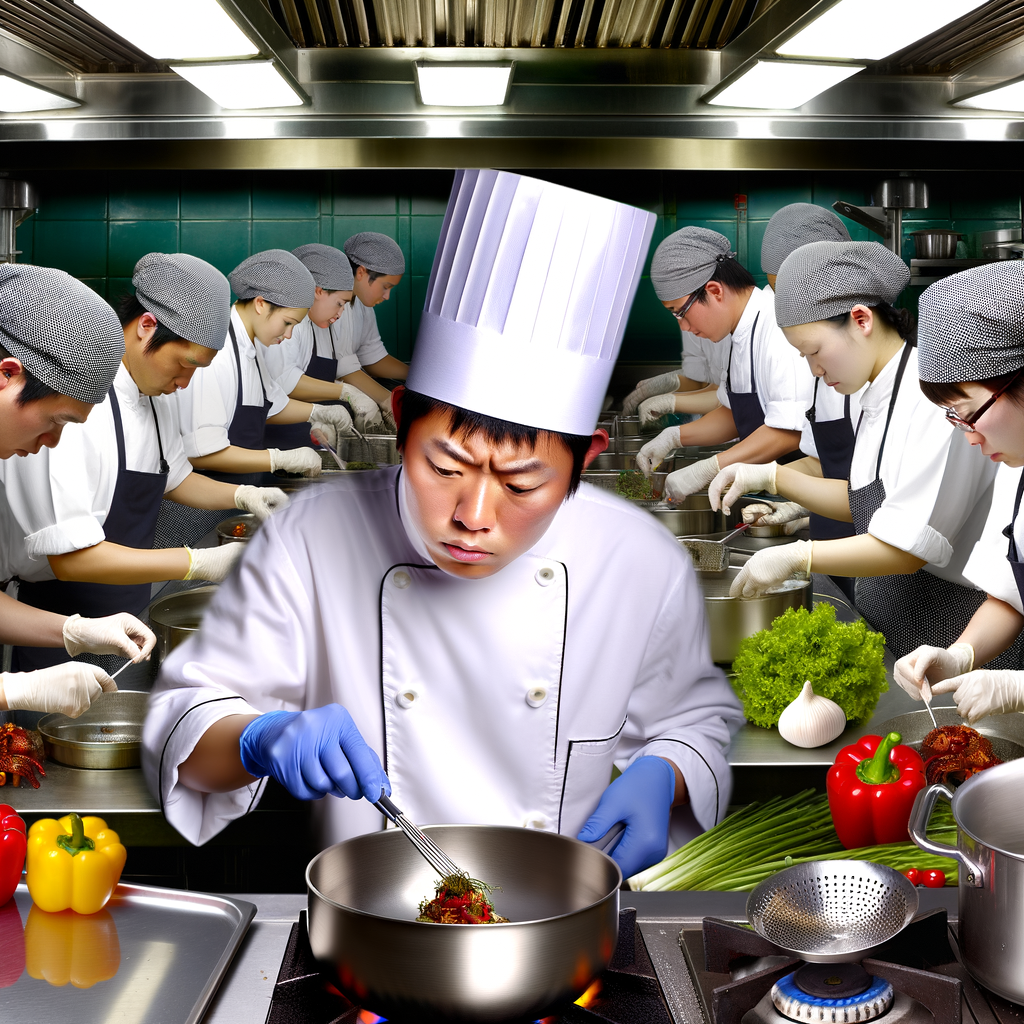Food safety is an important aspect of any meal preparation, and it’s essential to understand the proper ways to handle food in order to prevent foodborne illnesses. As an expert chef, I have seen firsthand the consequences of improper food handling and am dedicated to educating others on the importance of safe practices. In Europe, where food culture is rich and diverse, it is crucial to prioritize food safety to ensure the health and well-being of consumers.
First and foremost, it is important to always wash your hands thoroughly before handling any food. This helps prevent the spread of bacteria and other harmful microorganisms. When preparing raw meat, it’s important to keep it separate from other ingredients and to use separate cutting boards and utensils to avoid cross-contamination. Cook meat to the appropriate temperature to kill any harmful bacteria, and always use a food thermometer to ensure it has reached the safe internal temperature.
Proper storage is also key in safe food handling. Perishable foods should be stored in the refrigerator or freezer to prevent bacteria growth. When reheating leftovers, make sure they reach a safe temperature of 165°F (74°C). When in doubt, throw it out – it’s better to be safe than sorry when it comes to food safety.
In addition to safe handling, it’s important to also pay attention to expiration dates and proper food labeling. Consuming expired or improperly labeled food can also lead to foodborne illnesses. Educating yourself on food safety practices and staying up to date on any recalls or warnings is crucial in ensuring safe consumption of food.
In conclusion, as an expert chef, I cannot stress enough the importance of safe food handling. By following these guidelines, you can help prevent foodborne illnesses and promote a healthier food culture in Europe.

